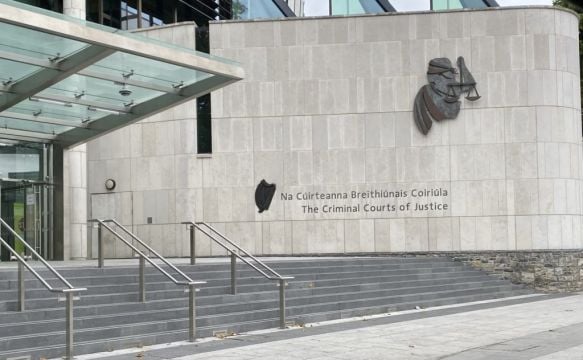A man whose positive testimonials were referenced in court after he was convicted of raping a family friend in her bed has lost his appeal against the conviction.
Conor Quaid (27), of Monaree, Dingle, Co Kerry, had pleaded not guilty to rape at a place in the county on June 10th, 2018.
A jury found him guilty, however, by a majority verdict of 10 to one following a seven-day trial at the Central Criminal Court in Cork in September 2020 and he was sentenced to six-and-a-half years’ imprisonment by Ms Justice Mary Rose Gearty.
Quaid later appealed the conviction on the grounds that Ms Justice Gearty erred in failing to define recklessness in her charge to the jury on the issue of consent.
It was further submitted that the judge had erred by placing the jury under “undue pressure” to reach a verdict rather than allowing them to disagree.
However, in a judgment delivered on Wednesday by Ms Justice Isobel Kennedy, the Court of Appeal dismissed all grounds of Quaid's case.
Consent
In her written judgment, Ms Justice Kennedy noted the issue in the case was “a simple one and one which often arises; was the complainant, as matter of fact, consenting to the sexual contact? And if not, did the appellant know this?”
Ms Justice Kennedy also observed that an accused man was guilty of rape if he has sexual intercourse with a woman “who is not consenting, and he knows that she is not consenting”.
During the trial, the jury were told there had been “drink taken” on the night of the offence.
At Quaid’s appeal hearing on March 11th, Michael Bowman SC, for Quaid, told Mr Justice George Birmingham, presiding, sitting with Mr Justice John Edwards and Ms Justice Kennedy, that “alcohol had been a feature in this case”.
The jury, counsel continued, were told by the judge “in black and white terms that drunkenness equates with recklessness”.
But there was “no evidence to suggest” that his client was “utterly obliterated with alcohol”, Mr Bowman added.
“The direction given to the jury was wrong and therefore an issue relating to the conviction presents itself,” counsel said.
Drink taken
In response, Vincent Heneghan SC, for the Director of Public Prosecutions, said "the only way recklessness could come into it is if they (the jury) equates his [Quaid's] actions with someone who was drunk at the time," adding that Quaid had told gardaí he “had drink taken” on the night in question.
Mr Heneghan described the judge’s charge as “extremely practical and pragmatic” and had explained matters to the jury “in a way they could understand”.
“The jury could have been under no confusion as to what the issues in this case were,” he said.
Ms Justice Kennedy said it was the Court of Appeal’s view that the jury had not been “advised that drunkenness equates with recklessness”.
The judge, she added, “made it very apparent to the jury throughout the charge that they had to determine the issues, to decide if the prosecution had proved every element of the offence alleged”.
The complaint that the judge had placed “undue pressure” on the jury to reach a verdict was similarly dismissed. “We have examined the transcript carefully and are not at all persuaded that the words of the judge were inappropriate,” Ms Justice Kennedy stated.
During the trial, which concluded in September 2020, the jury was told that on the night of the attack Quaid had been drinking before visiting the woman at her home.
The woman said she hadn’t been drinking that night and had gone to bed early. She later told gardaí that she woke up to find someone raping her.
She said she “froze” at first but quickly told Quaid to stop what he was doing and to get out of her room as soon as she realised what was happening.
Testimonials
At the sentence hearing, Mr Bowman handed in a number of testimonials from people who knew his client, including a local businessman.
This person described Quaid as “very honest” and “the best employee I had in 25 years of business”.
Another individual who knows Quaid “personally” spoke of the defendant's commitment to a local GAA club, as well as his care for an elderly relative.
Another referee described Quaid and “courteous and hardworking”. He said the offence was “out of character” and he hoped Quaid could move forward without the blight of addiction.
A team leader at a treatment facility for addiction described Quaid as having displayed responsibility for his issues.
Ms Justice Gearty said that Quaid abused this trust and she noted that he has not shown any remorse since.







